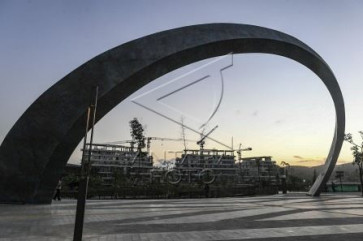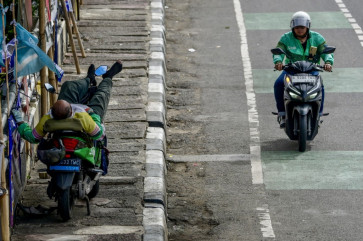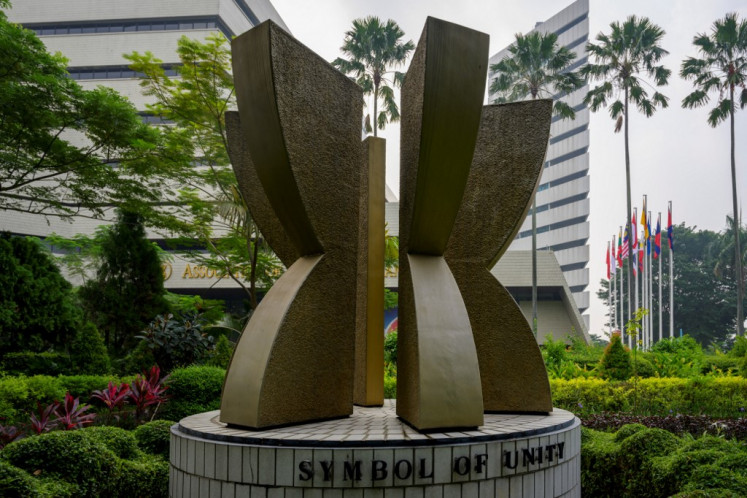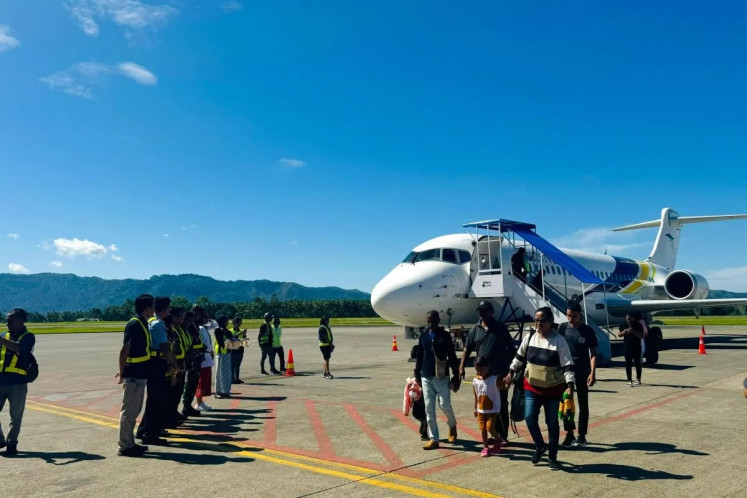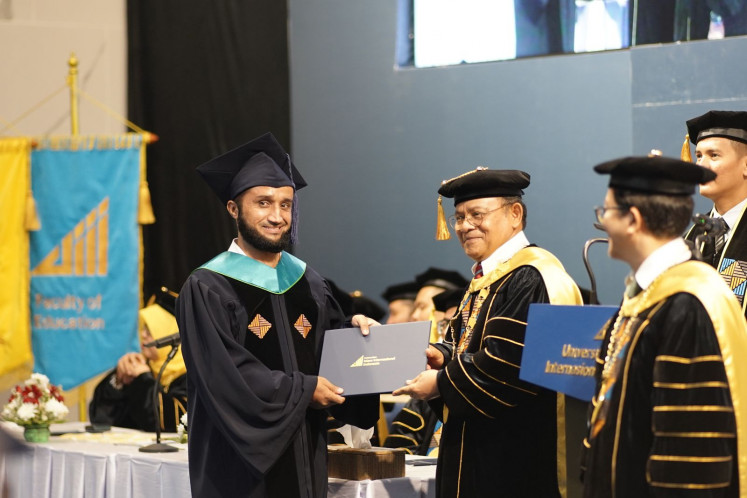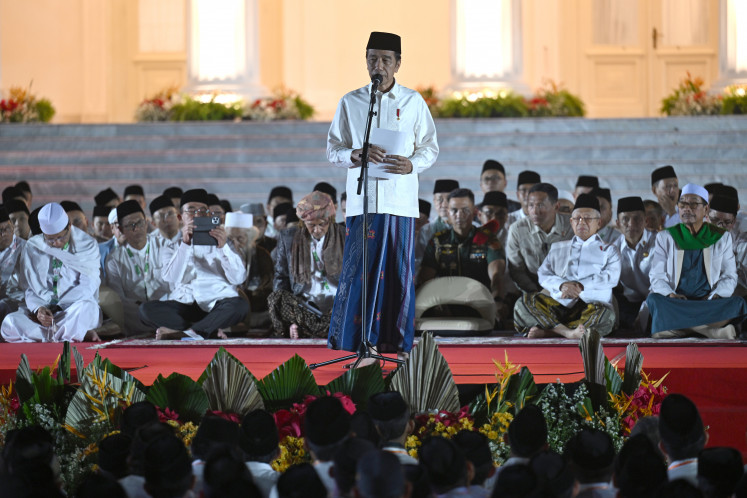Doctors know no borders
The ministry argued the foreign doctors may help solve the shortage of health professionals facing Indonesian hospitals.
Change Size
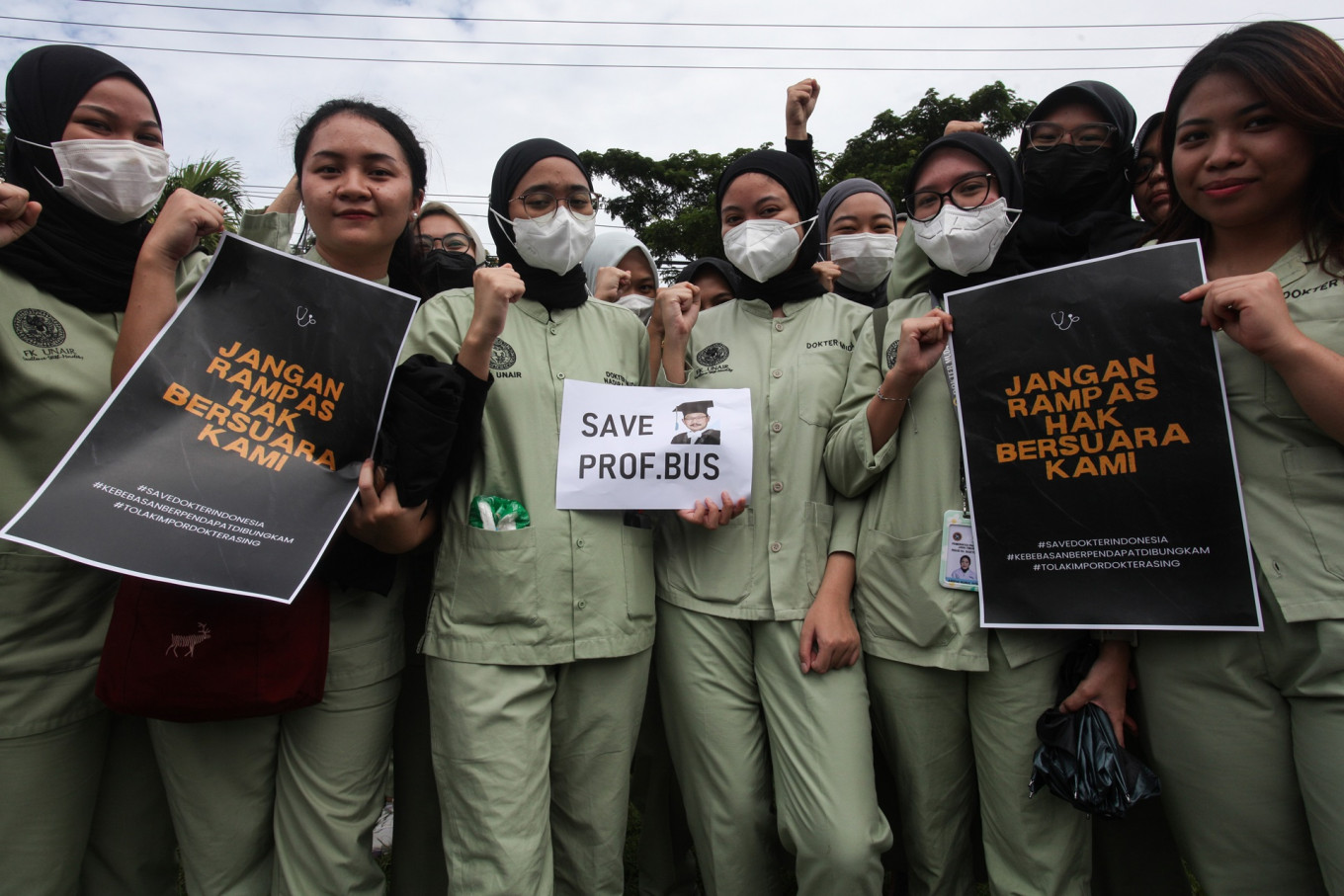 Medical students hold posters during a demonstration on July 4, 2024, in front of Airlangga University's School of Medicine in Surabaya, East Java. During the protest, which was also attended by professors and other academics on campus, they demanded that the university rector reinstate Budi Santoso as the school's dean so could complete his term. Budi was dismissed after expressing opposition to the Health Ministry's plan to invite foreign doctors to practice in Indonesia. (Antara/Didik Suhartono)
Medical students hold posters during a demonstration on July 4, 2024, in front of Airlangga University's School of Medicine in Surabaya, East Java. During the protest, which was also attended by professors and other academics on campus, they demanded that the university rector reinstate Budi Santoso as the school's dean so could complete his term. Budi was dismissed after expressing opposition to the Health Ministry's plan to invite foreign doctors to practice in Indonesia. (Antara/Didik Suhartono)
O
ver the past two weeks, we have heard the bad news of the sudden dismissal of a medical school dean in Surabaya, East Java. From Medan, good news has circulated about a number of children recovering after successful heart surgery at the Adam Malik General Hospital in the North Sumatra capital.
The two events seem unrelated at first glance but they revolve around the same issue: the government’s plan to invite foreign doctors to open practices in the country.
The dean was shown the door allegedly for his opposition to the plan in public. Meanwhile, the Health Ministry has been showcasing the successful surgeries in Medan, performed by a team of doctors from Saudi Arabia on a humanitarian mission, as a success story of foreign doctors helping and sharing knowledge with Indonesian physicians.
The government is pondering opening the country to doctors from around the world as a move to solve some of the biggest medical issues in Indonesia, such as the shortage of doctors.
According to Statistics Indonesia (BPS) data from 2023, the country only had 183,000 doctors, including specialists and general practitioners, serving 270 million people, making Indonesia one of the countries with the lowest doctor-population ratio. The World Health Organization’s has recommended that Indonesia increase the number of doctors to 270,000 to meet the threshold.
The invitation for foreign doctors to plug in the gap is stipulated in the omnibus Health Law, which was passed by the House of Representatives last year. The Health Ministry followed up the implementation of the law by issuing a circular last month announcing the need for foreign doctors in government-run hospitals.
The ministry argued the foreign doctors could help solve the shortage of health professionals facing Indonesian hospitals. They could also share knowledge on how to improve medical services as evident in Medan.
The health industry needs not only quality doctors but also improved services. There have been complaints from patients about the commercial mentality of our medical workers, leading them to eventually seek medical treatment overseas.
To appease concerns about foreign doctors taking the jobs of local doctors, Health Minister Budi Gunadi Sadikin said the government would limit the international medical professionals’ work permit to four years.
But what bothers us about the controversy over foreign doctors is how the government responded to dissenting views.
Airlangga University’s School of Medicine dean, Budi Santoso, criticized the government’s plan, saying 92 medical schools across the country were able to produce graduates whose quality could match that of foreign doctors. Not long after, he was fired.
The Health Ministry denied any link to the dismissal. But any appointment or dismissal of officials in state universities, including deans, must involve the government.
Such abuse of power, despite any good intentions, should have no place in a democracy, which values academic freedom. Budi has been reinstated as the dean, but the incident will discourage other scholars from questioning the government’s policies.
For one, the shortage of doctors has to be addressed to fulfill citizens’ right to health care and this is where foreign doctors can help. However, we need to acknowledge that foreign doctors are not the panacea.
Among the pressing issues facing the country’s health sector is medical workers’ job security and welfare. After enduring a long and expensive medical education, doctors tend to avoid practicing in remote or underdeveloped areas in order to receive better pay checks in the cities, depriving people there of their right to medical care.
It is important for the government to solve this distribution gap of doctors immediately. There have been insufficient incentives for doctors, as well as their families, to serve in outlying and disadvantaged regions.
At its core, the medical profession is a humanitarian job, which is to help whoever in need. Doctors, therefore, know no borders, as the sick can be in urban or rural, rich or poor regions. It is the government’s responsibility to make sure doctors are available to all.


